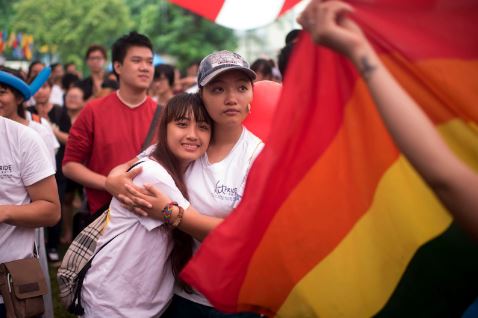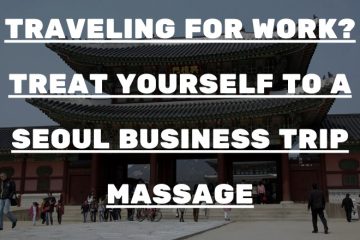Vietnam Tour surely offers one of the best experiences and caters to every interest of all kinds of travelers, whether it is Trekking in Sapa Valley Vietnam, or its delicious cuisine. But do you know? There’s one emerging thing in Vietnam that is changing the whole mindset of its people: The LGBTQ+ Community in Vietnam.
Like most of the countries in the world, Vietnam’s LGBTQ+ Community is also in its revolutionary phase, representing the complexities of identity and acceptance in a rapidly changing society. Understanding this community is not just an acknowledgment of individual rights but a recognition of the broader social dynamics that shape the overall mindset of upcoming generations. As Vietnam experiences social and economic transformations, the importance of understanding and supporting LGBTQ+ rights becomes important. Let us gain a deeper understanding of the experiences of the LGBTQ+ community in Vietnam and the importance of fostering acceptance and equality within society.
Empowering the LGBTQ+ Community in Vietnam
1. Traditional Context

Throughout history, Vietnam’s LGBTQ+ Community has faced significant challenges due to social norms and government policies.
Traditional principles often prioritize sexism, resulting in the discrimination of LGBTQ+ rights in Vietnam.
During the colonial era and under the Communist administration, homosexuality was regarded as a social evil and a danger to traditional family values.
Despite historical discrimination, there have been significant fights for LGBTQ+ rights in Vietnam.
In 2000, the Netherlands removed its ban on same-sex marriage, marking a shift toward greater acceptance of LGBTQ+ couples.
Furthermore, the government has attempted to eliminate discrimination based on gender or sexual identity, while challenges remain in imposing these rights.
Over time, cultural attitudes toward the LGBTQ+ community in Vietnam have evolved.
Increased exposure to Western ideas and values, and variousLGBTQ+ rights organizations, have contributed to greater acceptance and visibility for the community.
However, discrimination persists in various forms, highlighting the ongoing struggle for full equality and rights.
2. Current Scenario

In recent years, there have been significant changes in LGBTQ+ rights in Vietnam.
Same-sex relationships are legal, and there are legal protections against discrimination based on sexual orientation in employment as well.
However, same-sex marriage is not recognized, and LGBTQ+ individuals still face social discrimination in many aspects of their lives.
Despite these legal protections, the LGBTQ+ community in Vietnam continues to face significant challenges.
Discrimination in education, healthcare, and housing still exist, limiting the opportunities for many in the community.
However, still, the lack of anti-discrimination laws leaves this community helpless to mistreatment in various contexts, including public accommodations and services.
Various organizations, such as the Institute for Studies of Society, Economy and Environment (ISEE) play an important role in supporting LGBTQ+ rights in Vietnam.
These organizations engage in various activities, including legal and community outreach, and education, to promote equality and acceptance.
Despite these internal developments, challenges remain, including the lack of anti-discrimination laws and ongoing social discrimination.
The LGBTQ+ community in Vietnam continues to face barriers toward full acceptance, highlighting the need for a change in perspectives and social standards.
3. Cultural Perspectives

Cultural perspectives towards the LGBTQ+ community in Vietnam are complex.
While traditional values and societal norms still support discrimination, there is also a growing recognition of the diversity of human identities.
LGBTQ+ individuals are increasingly claiming their rights to live authentically and openly, challenging traditional conceptions of gender and sexuality.
Efforts to challenge stereotypes and promote equality are still in progress, led by LGBTQ+ rights organizations and other supporters.
These efforts include raising awareness about LGBTQ+ issues, challenging toxic stereotypes, and supporting greater representation in media and the public through campaigns.
Additionally, there is a growing movement within Vietnamese society to accept and adopt LGBTQ+ individuals as valued community members.
Despite progress and acceptance, cultural attitudes still disagree with full acceptance and inclusion.
While younger generations may be more open-minded and accepting, older generations still hold onto traditional beliefs about gender and sexuality.
Bridging these generational and cultural divides will require ongoing education, and efforts to create a more inclusive and accepting society for the LGBTQ+ community in Vietnam.
4. Future Perspective

Looking to the future, there is both optimism and uncertainty for Vietnam’s LGBTQ+ Community.
While there have been significant improvements in LGBTQ+ rights in Vietnam in recent years, challenges remain, including legal recognition of same-sex relationships and fighting social bias and discrimination.
Ongoing efforts to improve LGBTQ+ rights and acceptance are important for creating a more inclusive society in Vietnam.
Supporting organizations and activists must continue to push for legal reforms, raise awareness about LGBTQ+ issues, and promote acceptance and understanding.
Supporting initiatives that promote equality and acceptance is essential for ensuring a brighter future for the LGBTQ+ community in Vietnam.
By taking stands for the LGBTQ+ community and addressing various issues while also supporting their rights, we can contribute to building a more understanding society for all.
Conclusion:
Vietnam’s LGBTQ+ Community navigates through the complexities of social attitudes and legal issues. While significant improvements have been made in recent years, it still requires continued efforts to change stereotypes. By supporting initiatives that promote equality and acceptance, we can help in building a society for all in Vietnam.



